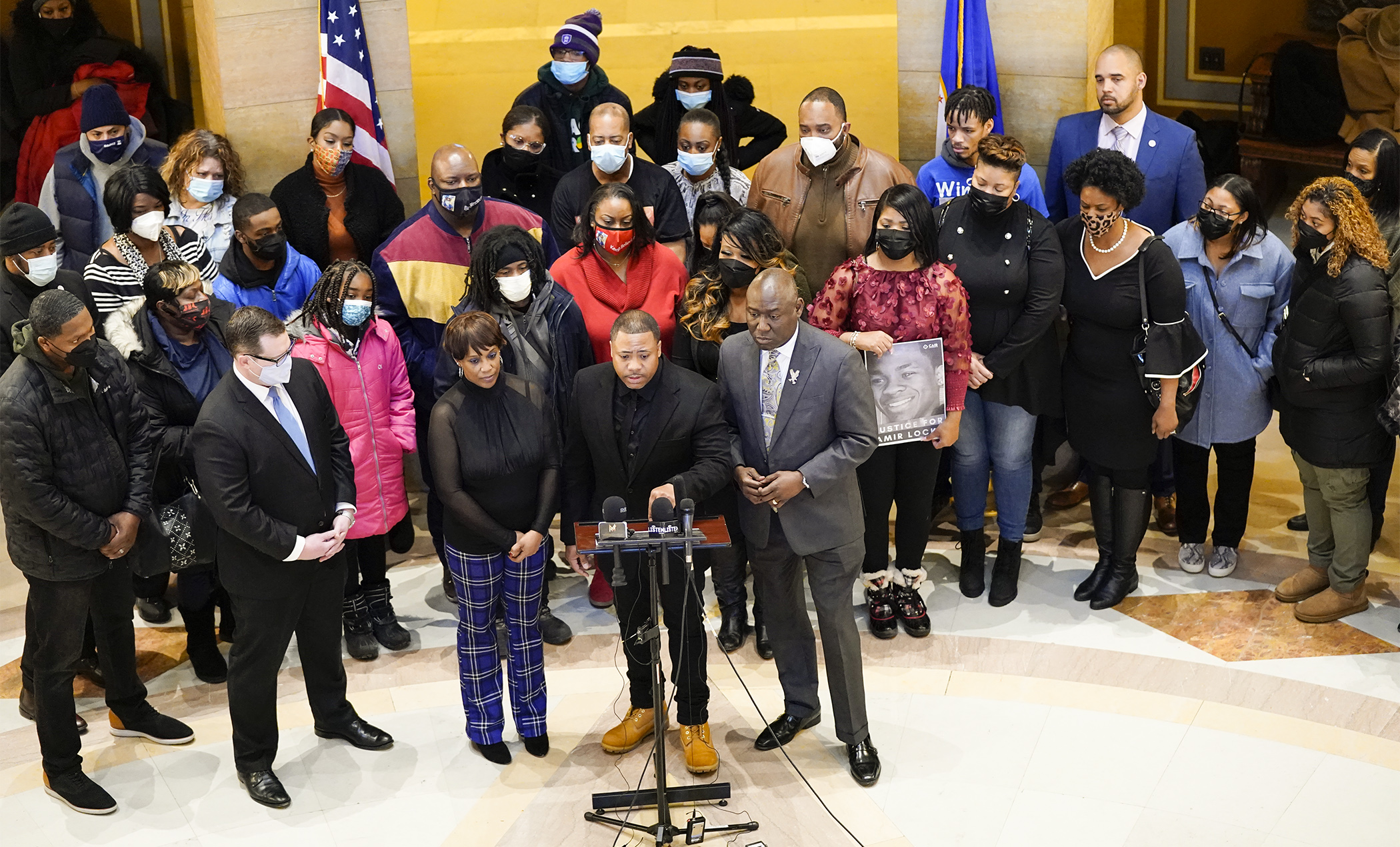Public safety committee OKs legislation to restrict no-knock warrants

“We all have some blood on our hands.”
Rep. Athena Hollins (DFL-St. Paul) spoke those words Thursday, the day of Amir Locke’s funeral, when presenting a bill to the House Public Safety and Criminal Justice Reform Finance and Policy Committee that would severely restrict no-knock warrants.
Police shot and killed Locke Feb. 2 in a Minneapolis apartment while executing a warrant in which he wasn’t named, and that didn’t require police to knock and give any occupant a chance to open the door.
Hollins said if a similar bill from last session had not been watered down, Locke would still be alive today.
“No-knock warrants are a dangerous tool that should only be used in cases where a captive individual may be severely harmed or killed as a consequence of police announcing themselves,” she said.
The committee approved HF3398 Thursday by a mostly party-line 10-9 vote and sent it to the House Judiciary Finance and Civil Law Committee. Rep. John Huot (DFL-Rosemount) was the only DFL member voting against the measure that has no Senate companion.
The use of no-knock warrants — where police are not required to announce their presence before forcibly entering a property — have increased dramatically since the war on drugs began in the 1970s, Hollins said.
These warrants are extremely dangerous for both the police executing them and the people on the other side of the door being forcibly breeched by the police officers, Hollins said.
Under the bill, judges could only issue a no-knock warrant “if there is clear and convincing evidence of a significant, articulable, and imminent risk of death or great bodily harm to an individual confined without the individual's consent at the location designated in the warrant.”
Rep. Paul Novotny (R-Elk River) unsuccessfully offered an amendment that would have eased the bill’s proposed restrictions by changing “clear and convincing evidence” to “probable cause.” It was not adopted on a party-line vote of 11-8.
Other provisions in the bill would:
- prohibit the issuance of a no-knock warrant if the officer requesting the warrant has knowledge that a person with a disability lives at the designated location;
- void a no-knock warrant and preclude use of information collected under the warrant if the application contains information the officer requesting the warrant knows is false;
- require the Department of Public Safety to develop a standard no-knock search warrant application;
- direct the attorney general and the Department of Public Safety to develop a four-hour training course on search, seizure, and obtaining and executing warrants; and
- require the Peace Officer Standards and Training board to develop a model policy and learning objectives on search, seizure, and warrant processing and execution. Chief law enforcement officers would be required to adopt the model policy.
Republicans and some, but not all, groups representing law enforcement oppose the bill.
No-knock warrants are already difficult to obtain, and rightly so, said Rep. Matt Grossell (R-Clearbrook), a retired police officer. Because these warrants can be very dangerous for all involved, Grossell said police officers use great discretion before asking a judge to grant them.
“Don’t take away a tool that we might not use all the time, but a tool that is needed to complete our toolbox,” he said.
St. Cloud Police Chief William Blair Anderson said the bill would make police officers less safe.
“The no-knock warrants we have applied for and gotten have all involved people who have been convicted of multiple felonies for violent crime,” he said. “If done properly, with due diligence, this is the best and the safest option for us to resolve potentially volatile issues efficiently, effectively, and most importantly, peacefully.”
However, law enforcement opposition to the legislation is not universal.
Mendota Heights Police Chief Kelly McCarthy, who is also chair of the POST board, said severely restricting no-knock warrants is not enough. They should be banned outright, she said, because they are too dangerous for everyone.
“Banning no-knock warrants does not mean an end to forced entry on warrants,” she said. “It just means that anyone present for those warrants has a reasonable opportunity to comply with the commands of the officers.
“Banning no-knock warrants does demonstrate to the community that we hear their concerns and are committed to preserving human life.”
Related Articles
Search Session Daily
Advanced Search OptionsPriority Dailies
Speaker Emerita Melissa Hortman, husband killed in attack
By HPIS Staff House Speaker Emerita Melissa Hortman (DFL-Brooklyn Park) and her husband, Mark, were fatally shot in their home early Saturday morning.
Gov. Tim Walz announced the news dur...
House Speaker Emerita Melissa Hortman (DFL-Brooklyn Park) and her husband, Mark, were fatally shot in their home early Saturday morning.
Gov. Tim Walz announced the news dur...
Lawmakers deliver budget bills to governor's desk in one-day special session
By Mike Cook About that talk of needing all 21 hours left in a legislative day to complete a special session?
House members were more than up to the challenge Monday. Beginning at 10 a.m...
About that talk of needing all 21 hours left in a legislative day to complete a special session?
House members were more than up to the challenge Monday. Beginning at 10 a.m...